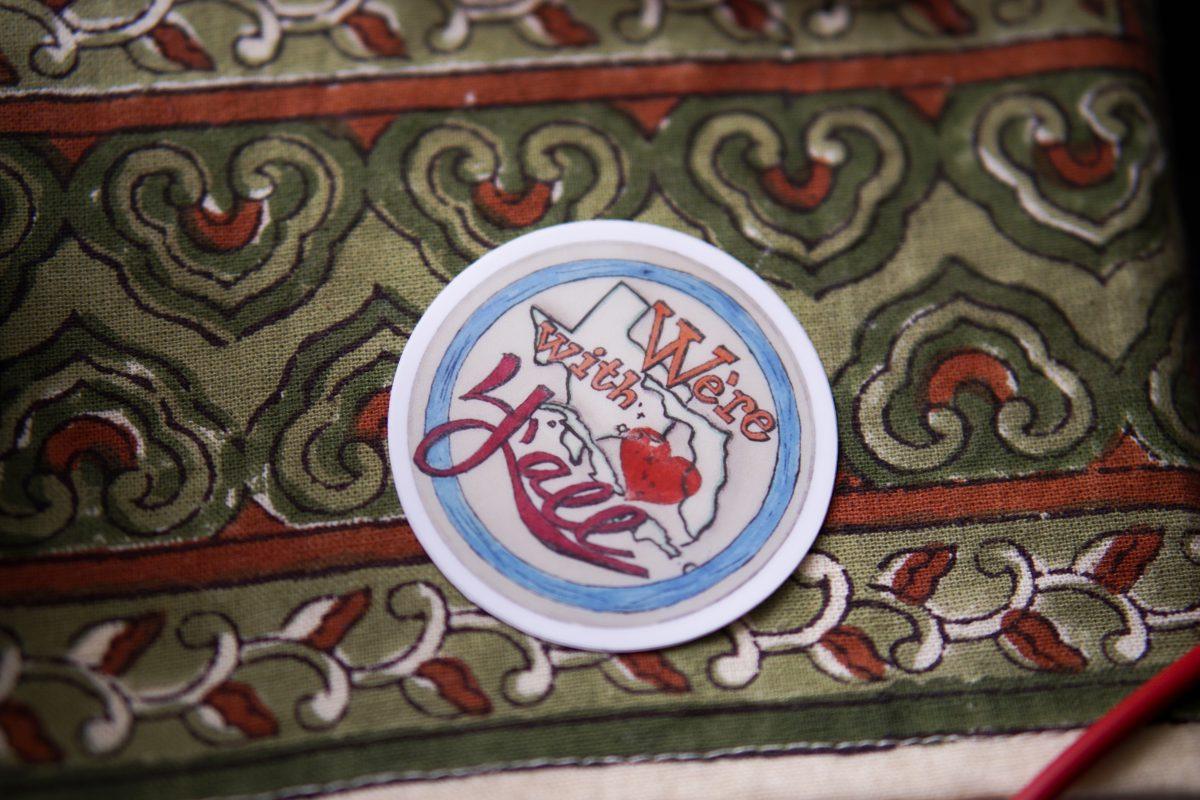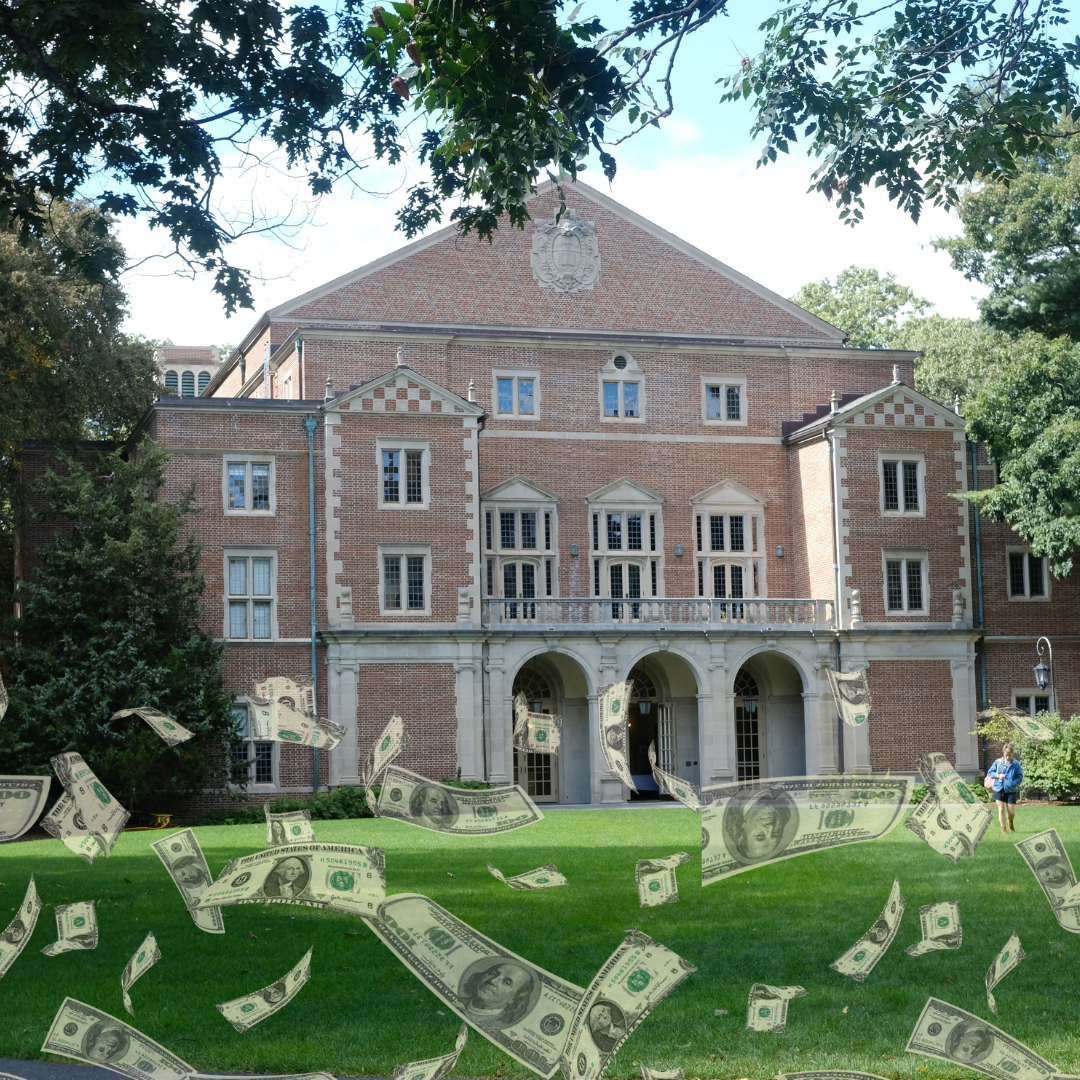After the beginning of a devastating hurricane season, many students and organizations on campus have had fundraisers to send aid to afflicted areas in Texas, Florida and the Caribbean, especially Puerto Rico. Deadly hurricanes Harvey and Irma severely displaced many in Texas and Florida. Farther south, hurricanes Irma and Maria caused a humanitarian crisis in Puerto Rico and the rest of the Caribbean, leaving people without running water or electricity. Due to President Trump’s reluctance to lift the Jones Act, which prevents foreign-flagged vessels from picking up and delivering fuel between U.S. ports, hurricane victims in the Caribbean have been unable to receive supplies from the United States.
The on-campus groups involved with aiding relief efforts include Mezcla, Tau Zeta Epsilon (TZE), Sophia’s Table and Wellesley for Caribbean Development (WCD). Individual students have also organized drives independently. The efforts mark a heightened interest in aiding natural disaster relief on campus.
Gabriela Portilla ’19, a student who coordinated an effort for supplies to be sent to Puerto Rico, explained that her desire to help was personal. She has family members living in Puerto Rico that were personally affected by hurricane Maria, and she felt compelled to aid them, as well as everyone else on the island.
“I am half-Puerto Rican, my Mom is from Puerto Rico, so her entire side of the family lives there. When the hurricane happened, it hit really close to home, and trying to get in touch with my family and hearing about the damages and the flooding and the lack of electricity and the fact that I couldn’t be there physically made me feel like I needed to do something,” Portilla explained.
Cseca Gazzolo ’20, a member of Protestant organization Sophia’s Table, also said that many members of her organization were inspired to help because of their personal experiences with the hurricanes.
“Sophia’s Table has several members from Texas, who were equally motivated [as I was] to make the fundraiser happen. We decided to raise money for Harvey in late August, but after Irma and Maria hit, the fundraiser became that much more important,” she said.
On Wednesday, Oct. 18, WCD hosted a talk in Slater International Center about the effects of hurricanes Irma and Maria on the Caribbean. Attendees discussed the damage to the islands, including power outages and loss of water, as well as the influence that climate change has had on the region and hurricanes in the region. They also discussed the media’s coverage of destruction in the Caribbean, especially in its depiction as the destruction of a vacation spot, rather than a place where people actually live.
“Our conversation had a significant theme regarding the double-edged sword that the Caribbean faces with its tourism industry. Many of these islands’ economies are largely dependent on tourism, and so foreigners often focus on the impacts that these natural disasters have on the tourism industry. Unfortunately, this means that discussions around the effects of these disasters are often focused on the loss of these paradise destinations instead of the people that live on these islands,” Emma Muschett ‘19, president of WCD stated.
Initially, Portilla wasn’t satis ed with the response to the hurricanes on campus, believing that people weren’t aware of the extent of the damage in Puerto Rico.
“At first I was surprised by the lack of knowledge about what happened in Puerto Rico, because all though it’s not a state, it’s a territory, and those people are U.S. citizens, and they’re also people, and I was kind of surprised at how people saw me the day after [the hurricane] and asked what was wrong. Not a lot of people knew what was going on,” Portilla said.
However, during her drive, she did feel as though people on campus were receptive to her message and wanted to donate to the cause.
“Once I started reaching out more, and people started to realize what was happening on the island, then donations started coming in. The amount that we raised was more that I could ever ask for in such short notice. People even reached out saying ‘what else can we do?’” explained Portilla.
Muschett wasn’t entirely happy with the campus’s response, either. She explained that WCD wanted to have the talk in part because they felt that people on campus weren’t aware that the hurricanes had hit the Caribbean in places other than Puerto Rico.
“We wanted to broaden the discussion and educate ourselves and others about the scope of the disaster . . . I have noticed a few organizations on campus advertising fundraising and relief efforts after the hurricanes. However, most of them have been largely focused on Puerto Rico, which is just one of the many islands badly affected by the hurricanes,” Muschett commented.
Gazzolo found that the community was very concerned about hurricane relief and wanted to ensure that the fundraiser would aid the greatest amount of people possible.
“The response has been really positive. There were a few people who reached out to ensure that our fundraiser was bene ting Puerto Rico, not just the mainland U.S., since a lot of news coverage and relief efforts have neglected the area. After hearing from these students, we decided to donate to Unidos por Puerto Rico as well as All Hands to make sure that our money was going where it would be needed the most,” she said.
Portilla also announced that TZE, the campus’ Art and Music Society, will be holding a benefit concert with Mezcla for hurricane victims on Thursday, Oct. 26 from 6 p.m. to 8 p.m. at the TZE house.
WCD is in the process of planning a relief event on Dec. 8. Although still in the planning stage, they have asked the Berkelee Riddim Symphony to perform.
“We hope to make it an evening of celebration of the tenacity and resilience of the Caribbean people,” Muschett said.
Both Gazzolo and Portilla were very careful about where they decided to donate their supplies. Gazzolo explained that Sophia’s Table decided to send their half of their proceeds to All Hands Volunteers, which will aid Texas, Florida and the U.S. Virgin Islands, and the other half to Unidos por Puerto Rico, which is a charity founded by Puerto Rico’s first lady, Beatriz Rosselló.
“We chose highly-rated organizations based on Charity Navigator’s ratings that would provide both short- term and long-term aid to affected communities,” she commented.
Portilla sent her donations to a larger drive at Northeastern, but she also encouraged students who wanted to donate money to donate to Unidos por Puerto Rico.






